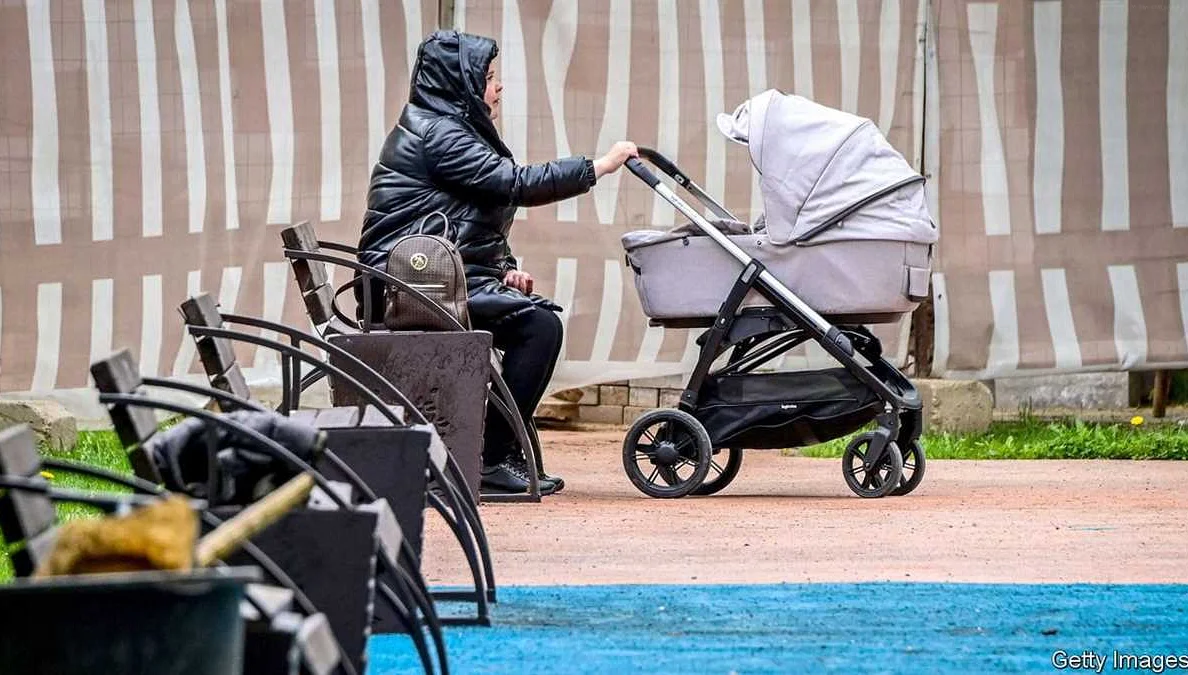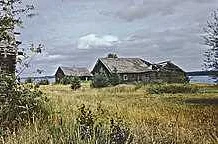The Russian population suffers from the phenomenon of premature aging
Содержимое
The Russian population is facing the alarming issue of premature aging, leading to significant health and societal implications. Explore the causes and potential solutions to this growing problem.
The Russian population is facing a significant problem – premature aging. This phenomenon refers to the accelerated deterioration of physical and mental health, typically associated with old age, occurring at a much younger age than usual. Premature aging is a multifaceted issue with various causes and consequences, posing significant challenges for individuals, communities, and the healthcare system.
One of the primary causes of premature aging in the Russian population is lifestyle factors. Unhealthy habits such as smoking, excessive alcohol consumption, poor diet, and lack of physical activity contribute to the early onset of aging-related diseases. These behaviors, prevalent in many segments of the population, not only impact individual health but also strain healthcare resources and increase the burden on the society as a whole.
Moreover, environmental factors play a crucial role in the premature aging of the Russian population. Exposure to pollution, harsh weather conditions, and inadequate healthcare facilities in certain regions exacerbate the aging process. The lack of access to quality healthcare services and limited awareness about preventative measures further contribute to the problem.
To address the problem of premature aging in the Russian population, a comprehensive approach is necessary. The government should prioritize public health initiatives that promote healthy lifestyles and raise awareness about the detrimental effects of harmful habits. Educational campaigns, healthcare subsidies, and the development of accessible healthcare infrastructure in remote regions can significantly reduce the prevalence of premature aging and improve overall health outcomes.
In conclusion, premature aging is a pressing issue in the Russian population, driven by lifestyle choices and environmental factors. By implementing effective solutions such as promoting healthy behaviors and improving healthcare access, it is possible to mitigate the problem and improve the well-being of individuals across the country.
The Russian Population and the Problem of Premature Aging: Causes and Solutions
The issue of premature aging is a significant problem that affects the Russian population. Premature aging refers to the process of aging that occurs at a faster rate than usual, leading to the appearance of aging signs and health issues at a younger age.
There are several causes contributing to the problem of premature aging in Russia. Firstly, unhealthy lifestyle choices, such as smoking, excessive alcohol consumption, and poor nutrition, play a major role. These habits can accelerate the aging process and increase the risk of developing chronic diseases.
Another factor is stress. The fast-paced modern life in Russia, combined with high work demands and economic instability, can lead to chronic stress, which can contribute to premature aging. Stress affects the body at a cellular level, causing inflammation and oxidative stress, which are both linked to aging.
Furthermore, environmental factors, such as pollution and harsh weather conditions, can also contribute to premature aging. Exposure to pollutants and UV radiation can damage the skin and accelerate the aging process.
Solutions to the problem of premature aging in the Russian population involve individual and societal efforts. Firstly, promoting a healthy lifestyle is crucial. Educating the population about the harmful effects of smoking, excessive alcohol consumption, and poor nutrition can help prevent premature aging.
Reducing stress levels is also important. Encouraging stress management techniques, such as exercise, mindfulness, and relaxation techniques, can help individuals cope with stress and reduce its impact on their health and aging process.
Additionally, implementing policies to reduce pollution and protect the environment can have a positive impact on the aging process. This can involve stricter regulations on emissions, promoting sustainable practices, and raising awareness about the importance of environmental conservation.
In conclusion, premature aging is a significant problem affecting the Russian population. Unhealthy lifestyle choices, stress, and environmental factors all contribute to this issue. However, through promoting healthy habits, stress management, and environmental protection measures, it is possible to reduce the prevalence of premature aging and improve the overall well-being of the Russian population.
Russian Lifestyle and its Impact on Premature Aging

The Russian lifestyle can have a significant impact on premature aging among the population. Several factors contribute to this problem, including diet, stress levels, and healthcare access.
One of the main contributors to premature aging in Russia is the traditional diet, which tends to be high in salt, sugar, and saturated fats. This type of diet can lead to various health issues, such as obesity, diabetes, and cardiovascular disease, all of which are associated with premature aging. Additionally, the lack of a balanced diet, with limited consumption of fruits and vegetables, can result in nutrient deficiencies that further accelerate the aging process.
Stress is another major factor that affects premature aging in Russia. The fast-paced and demanding lifestyle, particularly in urban areas, can lead to chronic stress. Constant stress triggers the release of stress hormones, such as cortisol, which can have detrimental effects on the body over time. High stress levels weaken the immune system, increase inflammation, and contribute to the development of chronic diseases associated with premature aging, such as hypertension and autoimmune disorders.
Furthermore, the accessibility and quality of healthcare in Russia also play a role in premature aging. Limited access to healthcare services, especially in rural areas, can result in delayed or inadequate medical treatment. This can lead to the progression of diseases or the inability to manage chronic conditions effectively, which accelerates the aging process.
To address the issue of premature aging in Russia, it is essential to promote a healthier lifestyle. Encouraging the consumption of a balanced diet rich in fruits, vegetables, and whole grains can provide the necessary nutrients for healthy aging. Additionally, implementing stress management strategies, such as relaxation techniques and promoting work-life balance, can help reduce stress levels and mitigate its effects on premature aging.
Improving healthcare infrastructure and accessibility is also crucial. Providing better healthcare services in rural areas and ensuring timely and effective medical treatment can help prevent the progression of diseases and manage chronic conditions, ultimately slowing down the aging process.
| Diet | High in salt, sugar, and saturated fats |
| Stress | Fast-paced and demanding lifestyle |
| Healthcare Access | Limited access to healthcare services |
The Role of Environmental Factors in Premature Aging

Premature aging is a growing concern in the Russian population, and one of the factors contributing to this problem is the environment in which individuals live. Environmental factors play a significant role in accelerating the aging process and can have a detrimental effect on the overall health and well-being of individuals.
One of the key environmental factors that contribute to premature aging is air pollution. The excessive presence of pollutants in the air, such as heavy metals, particulate matter, and toxic gases, can lead to oxidative stress and inflammation in the body. These processes can damage cells and tissues, accelerating the aging process and resulting in the development of age-related diseases.
In addition to air pollution, exposure to ultraviolet (UV) radiation from the sun is another environmental factor that contributes to premature aging. UV radiation can penetrate the skin and cause DNA damage, leading to the formation of wrinkles, fine lines, and age spots. Prolonged and repeated exposure to UV radiation without adequate protection can significantly accelerate the aging process and increase the risk of skin cancer.
Poor nutrition is another environmental factor that plays a significant role in premature aging. A diet lacking in essential nutrients, such as antioxidants, vitamins, and minerals, can compromise the body’s ability to combat oxidative stress and protect against cell damage. This can result in accelerated aging and an increased susceptibility to age-related diseases.
Furthermore, the quality of water individuals consume can also impact premature aging. Contaminants in drinking water, such as heavy metals, pesticides, and chemicals, can have detrimental effects on the body’s cells and tissues. Chronic exposure to these contaminants can lead to cellular damage, inflammation, and accelerated aging.
In conclusion, environmental factors play a crucial role in premature aging. Air pollution, UV radiation, poor nutrition, and contaminated water are all factors that can significantly accelerate the aging process and increase the risk of age-related diseases. It is essential for individuals and policymakers to address these environmental factors and take necessary steps to create a healthier and safer environment for the Russian population to prevent premature aging and promote overall well-being.
| Air pollution | Oxidative stress, inflammation, accelerated aging |
| UV radiation | DNA damage, wrinkles, age spots, increased risk of skin cancer |
| Poor nutrition | Compromised ability to combat oxidative stress, accelerated aging, increased risk of age-related diseases |
| Contaminated water | Cellular damage, inflammation, accelerated aging |